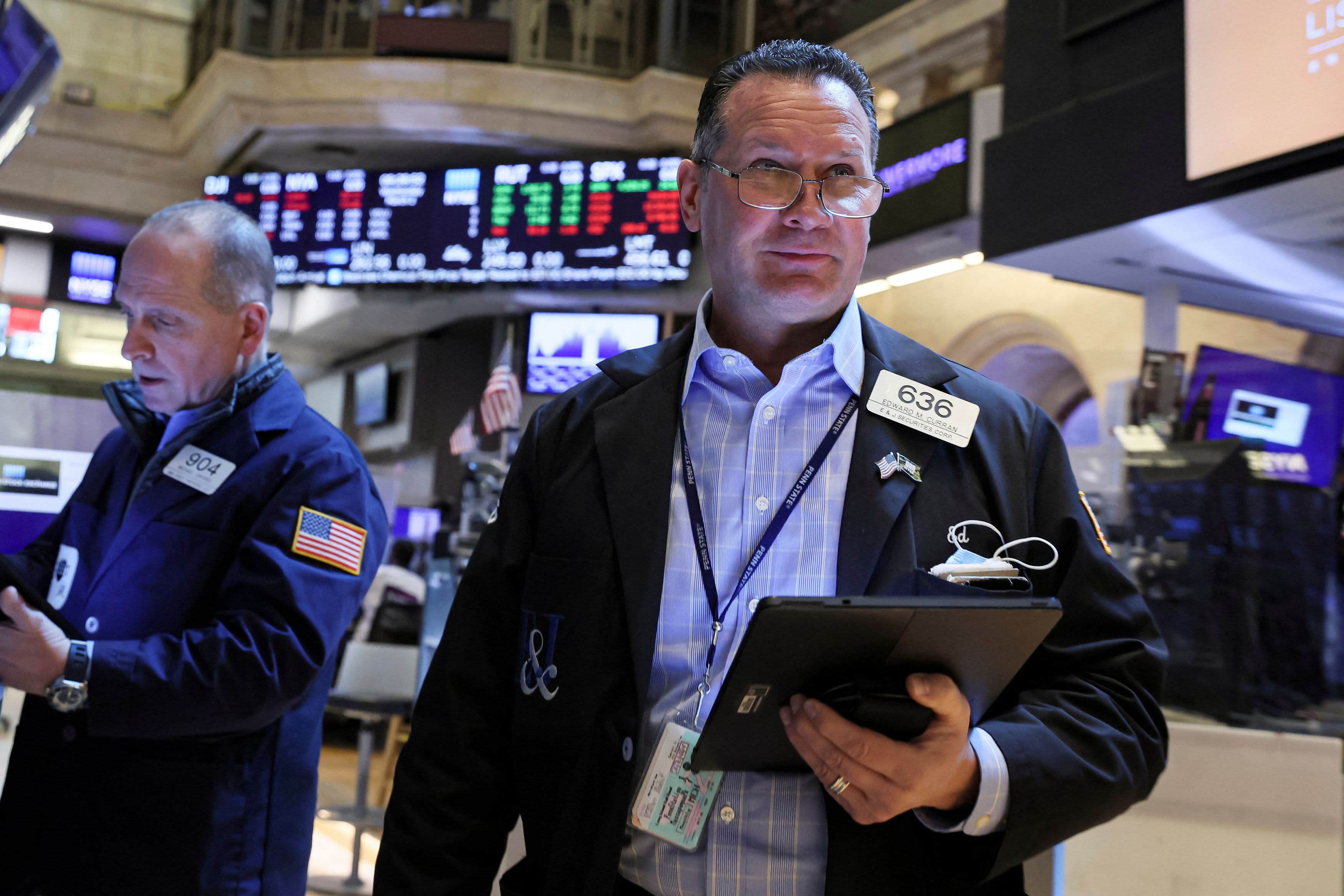Dow futures fall more than 600 points as oil prices spike to multi-year high on Russia-Ukraine war

A trader works on the floor of the New York Stock Exchange (NYSE) in New York City, U.S., March 2, 2022. REUTERS/Brendan McDermid
Brendan McDermid | Reuters
U.S. equity futures fell Sunday evening as U.S. oil price momentarily jumped to their highest level since 2008 amid the ongoing war between Russia and Ukraine.
Dow futures lost 611 points, or 1.82%, while S&P 500 futures and Nasdaq 100 futures slid 1.87% and 1.82%, respectively.
West Texas Intermediate crude futures, the U.S. oil benchmark, traded 7.24% higher to $124.07 per barrel, earlier hitting $130 per barrel at one point before pulling back partially. The international benchmark, Brent crude, traded 7.9% higher to $127.40 per barrel after earlier spiking to $139.13 per barrel — its highest since July 2008.
Secretary of State Antony Blinken said Sunday that the U.S. and its allies are considering banning Russian oil and natural gas imports in response to the country’s attack on Ukraine.
Speaker Nancy Pelosi also said in a letter to Democratic colleagues that the U.S. House of Representatives is “exploring strong legislation” to ban the import of Russian oil — a move which would “further isolate Russia from the global economy.”
Gas prices surged to their highest level since 2008, with the national average topping $4 a gallon, according to AAA.
Planned evacuations from the cities of Mariupol and Volnovakha Saturday were canceled after Russia violated a cease-fire agreement and fighting continued in or around both cities. Mariupol City Council said Sunday that Russia had again violated a second attempt at a temporary cease-fire that would enable its civilians to leave.
On Friday, the Dow fell 179 points, or 0.5%, to notch its fourth straight losing week. The S&P 500 lost 0.7% and closed more than 10% from its record close, a technical correction. The Nasdaq Composite moved down 1.6%.
The moves came as investors continued monitoring developments in the war between Russia and Ukraine, which weighed heavily on sentiment despite positive U.S. economic data out Friday.
“Investors aren’t really just jumping out and exiting, what they’re doing is rotating from Europe to the U.S., from cyclicals to big cap defensive type names,” Lindsay Bell, Ally’s chief markets and money strategist, told CNBC’s “Closing Bell.” “That’s a positive sign but what we’re going to need to see is that re-rotation back into the more growthy, riskier areas of the market to show that maybe the risk-on mode is back in play.”
Energy stocks were a bright spot in the market as oil prices increased. Occidental Petroleum gained a whopping 17%. Meanwhile, bank stocks – which benefit from higher interest rates – were lower as the benchmark 10-year Treasury fell to around 1.73%.
European stocks were down sharply and finished the week 7% lower, marking their worst stretch since March 2020. The VanEck Russia ETF, one of the few Russia-linked funds still trading, fell 2% to finish the week down more than 60%.
Positive data from the U.S. Labor Department wasn’t enough for investors to shrug off concerns about the war between Russia and Ukraine. On Friday the Bureau of Labor Statistics reported the economy added 678,000 jobs in February. The monthly jobs gain topped economists’ expectations of 440,000, according to Dow Jones. The unemployment rate slipped to 3.8%.
For the week, the Dow and S&P 500 slid about 1.3%. The Nasdaq Composite lost roughly 2.8%.
“This is an example of people wanting to be defensive over the weekend, and not wanting to own risk as we’re seeing the situation unfold, so the bond market completely ignored the jobs report,” Jeff Sherman, DoubleLine Capital deputy chief investment officer, said on “Closing Bell” Friday. “The Treasury market right now is not focused on the backward-looking economic data, it’s looking at the current crisis that we’re facing, the Ukraine situation.”
Several economic data reports are scheduled to be released throughout the coming week, including the Consumer Price Index for February, due Tuesday. The key indicator is expected to show inflation continues to rise sharply, which could keep the stock market volatile in the week ahead.
The February job openings and labor turnover survey, or JOLTS, is expected Wednesday.
A quieter week of earnings is on deck. Some big tech names like Oracle, CrowdStrike and DocuSign are scheduled to report. Rivian Automotive, Ulta Beauty and Bumble will also report.




